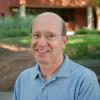news
Professor Dave Goldsman Is ISyE’s New Director of Master’s Programs
Primary tabs
The Stewart School of Industrial and Systems Engineering (ISyE) at Georgia Tech announced that Professor David Goldsman is the new director of ISyE’s five general master’s degree programs. He will oversee the industrial engineering, operations research, health systems, statistics, and computational science and engineering programs.
This is a new position for ISyE. What do you hope to accomplish in this role?
The most important thing is to continue bringing a diverse cohort of terrific students into ISyE. I really like doing recruiting, connecting with students, and talking about all of the great master’s programs we have here.
We’d also like to transition ISyE’s top undergrads into our graduate programs, and moreover, to recruit the strongest students from neighboring schools such as Emory University, Spelman College, and Morehouse College. In addition, Associate Chair for Graduate Studies and Coca-Cola Professor Alan Erera has encouraged me to tweak and evolve our offerings to respond to the latest analytical tools – big data, machine learning, and individualized health care, among others.
I would also like to expand our health systems classes a bit, since that’s my big applications area these days. I’ll also use the position to identify students who might be better served in one of our premium programs such as the M.S. in Analytics – or maybe even our Ph.D. program. We get so many incredible students, it’d be nice to cherry-pick some of them to stay around for even more fun in ISyE.
You have a reputation for being an engaging teacher and being popular with students. How does this new position fit in with your teaching philosophy?
Ah, you are too kind. I’ve always enjoyed teaching at the master’s level, where you can mix theory with applications. Our students are bright and provide a lot of back-and-forth synergy during class; that keeps the energy up, especially during discussions on how to apply the math to interesting problems. That’s what we want in our M.S. programs – people who can jump into the real world and take on a variety of projects requiring some mathematical firepower that a normal student (say, from UGA) wouldn’t be able to competently touch.
What are your responsibilities in this position?
Lots of different things. I supervise the recruitment and admissions of master’s students, monitor their progress, and help to deal with any issues that come up. I see a lot of petition signing in my future. And as I mentioned before, I’ll help to modernize our current programs – maybe develop new ones – and then monitor and report on program outcomes. The good news is that I’ll get to work with Alan, Director of Student Services Dawn Strickland, and Graduate Programs Manager Amanda Ford, who know the lay of the land really well. It probably helps that I’ve been in ISyE since about the late 1940s, and I used to shadow our previous graduate chair, now-Professor Emeritus Gary Parker, as he carried out his responsibilities.
You seem to like math. Do you happen to know the loneliest number?
Yes, it’s well-known that one is the loneliest number. But, of course, two can be as bad as one.
About Professor Goldsman
Goldsman’s research interests include simulation output analysis, statistical ranking and selection methods, and medical and humanitarian applications of operations research.
He has published extensively, and has over 75 publications in such bellwether journals as Management Science, Operations Research, Operations Research Letters, IISE Transactions, and Sequential Analysis. He has also co-authored about 20 book chapters, as well as the texts Design and Analysis of Experiments for Statistical Selection, Screening and Multiple Comparisons, with Bob Bechhofer and Tom Santner, and Probability and Statistics in Engineering (4th edition), with Bill Hines, Doug Montgomery, and Connie Borror.
Goldsman and Christos Alexopoulos won the INFORMS Simulation Society's 2007 Outstanding Simulation Publication Award for their paper “To Batch or not to Batch?” which appeared in ACM TOMACS in 2004. In addition, he, Alexopoulos, Claudia Antonini, and Jim Wilson won the IIE Transactions 2010 Best Paper Prize in Operations Engineering and Analysis for their 2009 paper “Area Variance Estimators for Simulation Using Folded Standardized Time Series.” He received the INFORMS Simulation Society's Distinguished Service Award in 2002. Goldsman also received a Fulbright Fellowship in 2006 to lecture at Boğaziçi and Sabancı Universities in Istanbul, Turkey. He is a Fellow of the Institute of Industrial and Systems Engineers.
Goldsman is an active consultant, having undertaken various projects in the health care, airline, automotive, fast food, hotel, and banking industries, among others.
Status
- Workflow status: Published
- Created by: Shelley Wunder-Smith
- Created: 09/07/2018
- Modified By: Shelley Wunder-Smith
- Modified: 09/07/2018
Categories
Keywords

